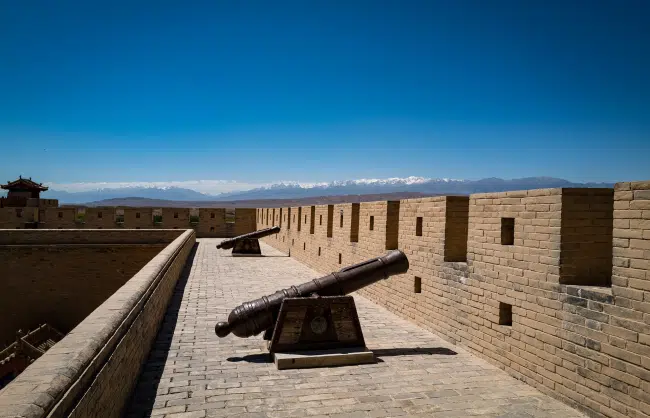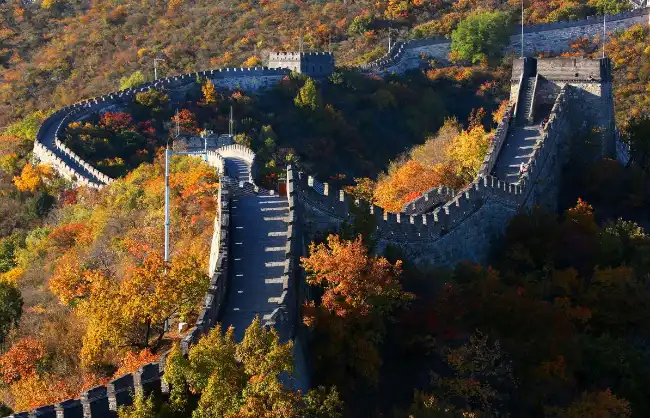The Great Wall of China is an iconic symbol of the country and its people’s ingenuity. It has a history of over 2,000 years, spanning over 13,000 miles. The Great Wall of China is recognized as one of the world’s seven wonders. Today, it is an essential stop in almost everyone’s China tours.
Behind its impressive scale, incredible architecture, and ancient history, what was the purpose of the Great Wall of China? This article will explore why the Great Wall of China was built, its purpose throughout history, and its significance today.
The Primary Purpose of the Great Wall of China: Why was it Originally Built?
Purpose Upon Origin Construction
The Great Wall of China was first constructed in 7th century BC, the Warring States period of ancient China. During that time, China was not yet unified into one state. Numerous states were constantly vying for dominance and control over territories. There were frequent conflicts and skirmishes along the borders.
The primary purpose of the Great Wall of China was defense. Different states built stone walls along their borders to defend themselves against neighboring states. Those walls were nothing like the Great Wall that we know today. They were much smaller in scale, scatted across different parts of China.

Purpose of Construction in Qin Dynasty
In 221 BC, Emperor Qin Shi Huang established Qin Dynasty and unified the states. During his reign, he connected and reinforced existing fortifications from before to create a cohesive defense system against invasions. This laid the foundation for the Great Wall of China that we know today.
The purpose of the Great Wall of China back then was also for defense, against invasions by nomadic tribes from the north, especially the Xiongnu. The northern border of China was made much stronger thanks to the physical barrier, which helped protect the ancient Chinese civilization.
The steep inclines, rugged terrain, and winding paths of the walls made it challenging for invading forces to breach the defenses. They kept out the nomadic armies, their horses in particular, which there was a lack of in the agricultural society of China.
Purpose of Construction in Ming Dynasty
Subsequent dynasties like Han, Sui, and Ming Dynasties all continued to reinforce the Great Wall of China for defending different enemies from the north, like the Khitans in Song Dynasty and the Mongols in Ming Dynasty. The walls slowly increased in scale.
The most significant expansion took place during Ming Dynasty, from the 14th to the 17th century. To defend against the Mongol invasions led by Genghis Khan and his successors, Ming emperors ordered the construction of the most well-known sections of the Great Wall which still stand today. You can embark on a Great Wall of China tour to witness the historical wonder in person.
Other Purposes of the Great Wall of China
A Communication Network
Another purpose of the Great Wall of China is communication. The wall has many watchtowers, beacon towers, and fortresses across its entire length. Stationed with soldiers who used signal fires or smoke to send messages, the system enabled fast communication across great distances.
Soldiers were able to spot enemy movements and invasions from the towers, send the signal to notify neighboring garrisons of impending danger. They could then respond to the threats quickly by dispatching troops.

A Support Station in Battles
During battles, the Great Wall of China had many functions. It served as a station for supplies like food and weapons. Transport and access were made a lot easier. The fortresses were stationed with troops. When one location is attacked, nearby fortresses can send reinforcements quickly.
Safeguarding Trades along the Silk Road
The Great Wall was extended in Han Dynasty along Hexi Corridor, a part of the ancient Silk Road. It protected the important trade route from invasions and bandits, ensured the safety of valuable commodities and their transportation. It also made communication easier for travelers. The Great Wall served great purposes in promoting the cultural and economic exchanges between China and other countries.
Regulation of Trade across Border
The Great Wall also acted as a means of regulating trade and controlling the flow of goods across the border. There were checkpoints and customs stations established to collect taxes from merchants.
In ancient time, the south of the Great Wall was mainly agricultural societies, while the north of the Great Wall, nomadic cultures had a flourishing animal husbandry economy. The two cultures exchanged daily goods across the wall. People in China sold grain and cloth in exchange for horses and products like leather. Along with the goods, cultural exchanges took place as well.
Significance of the Great Wall today
While many original purposes of the Great Wall of China no longer apply in the modern society, it still holds great importance globally. Recognized as a UNESCO World Heritage site, it attracts millions of visitors annually to travel to China. The Great Wall stands as a symbol of China’s rich history and architectural brilliance.
It has brought tourism and economic development to the surrounding regions, especially the capital city, Beijing. You can go on a Beijing tour to different parts of the Great Wall and experience the world wonder in person.










